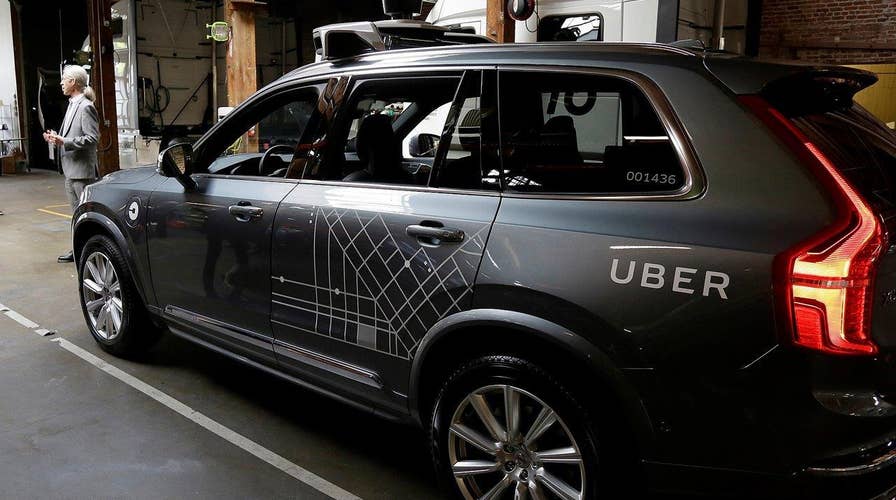Uber pulls self-driving cars from California roads
William La Jeunesse reports from Los Angeles
Uber pulled its self-driving cars from California roads on Wednesday after state regulators moved to revoke their registrations, officials said.
The decision came after a week of talks between the ride-sharing company and state regulators failed.
The DMV said the registrations for the vehicles were improperly issued for because they were not properly marked as test vehicles. It invited Uber to seek a permit so their vehicles could operate legally in California — an offer the company said it did not plan to accept.
The controversy started when Uber launched the service in its hometown of San Francisco. The cars needed the same special permit as the 20 other companies testing self-driving technology in California, regulators argued.
Uber maintains it does not need a permit because the cars are not sophisticated enough to continuously drive themselves, although the company promotes them as "self-driving."
The company said in a statement that it was looking for where it could redeploy the cars, but remained 100 percent committed to California and would redouble its efforts "to develop workable statewide rules."
'DISRESPECTED' UBER DRIVER STABS PASSENGER SEVERAL TIMES
The ride-sharing company says the cars must constantly be monitored by a human driver trained to take control at any time, so they don't fall under California's permitting requirements for "autonomous vehicles."
Parsing the definition of an autonomous vehicle is the latest example of Uber testing legal boundaries. In recent years, the company has argued with authorities in California and elsewhere about how to check the criminal backgrounds of its human drivers and whether those drivers should be treated as contractors or employees.
San Francisco is Uber's second self-driving city; its first cars have been cruising around Pittsburgh since September. The testing lets Uber identify glitches and gives everyday people a chance to interact with the technology — whether as a passenger, pedestrian or driver in another car.
Mayor Ed Lee, who has been a long-time advocate of car sharing, ride sharing and driverless technology, told KTVU on Wednesday that he fully expects all autonomous vehicle developers -- including Uber CEO Travis Kalanick -- to follow state and city laws.
"I think he should not be operating his driverless vehicle technology without that permit," Lee said. "Twenty other companies have not had a problem getting those permits."
Operating without a permit arguably gives Uber a competitive advantage. Companies with one must file a public report of all crashes to the state and every instance in which a person takes control during testing.
Waymo, a self-driving company created by Google and an Uber rival with a state permit, has disclosed 29 accidents involving its vehicles on public streets since 2010.
In Pittsburgh, Uber has not been required to release any information about crashes.
Chris Koff, who runs AK Subs in San Francisco at 8th and Harrison streets, told KTVU he saw a self-driving Uber car run a red light.
"All of a sudden the car ran through the red light," Koff said. "It just took off. And there was a car that was coming down 8th Street that had to slam his brake, honk his horn and stop."
Uber said one incident in front of San Francisco's Museum of Modern Art illustrated why its cars require constant monitoring by a human driver — and therefore didn't need a state permit.
The Associated Press contributed to this report.
